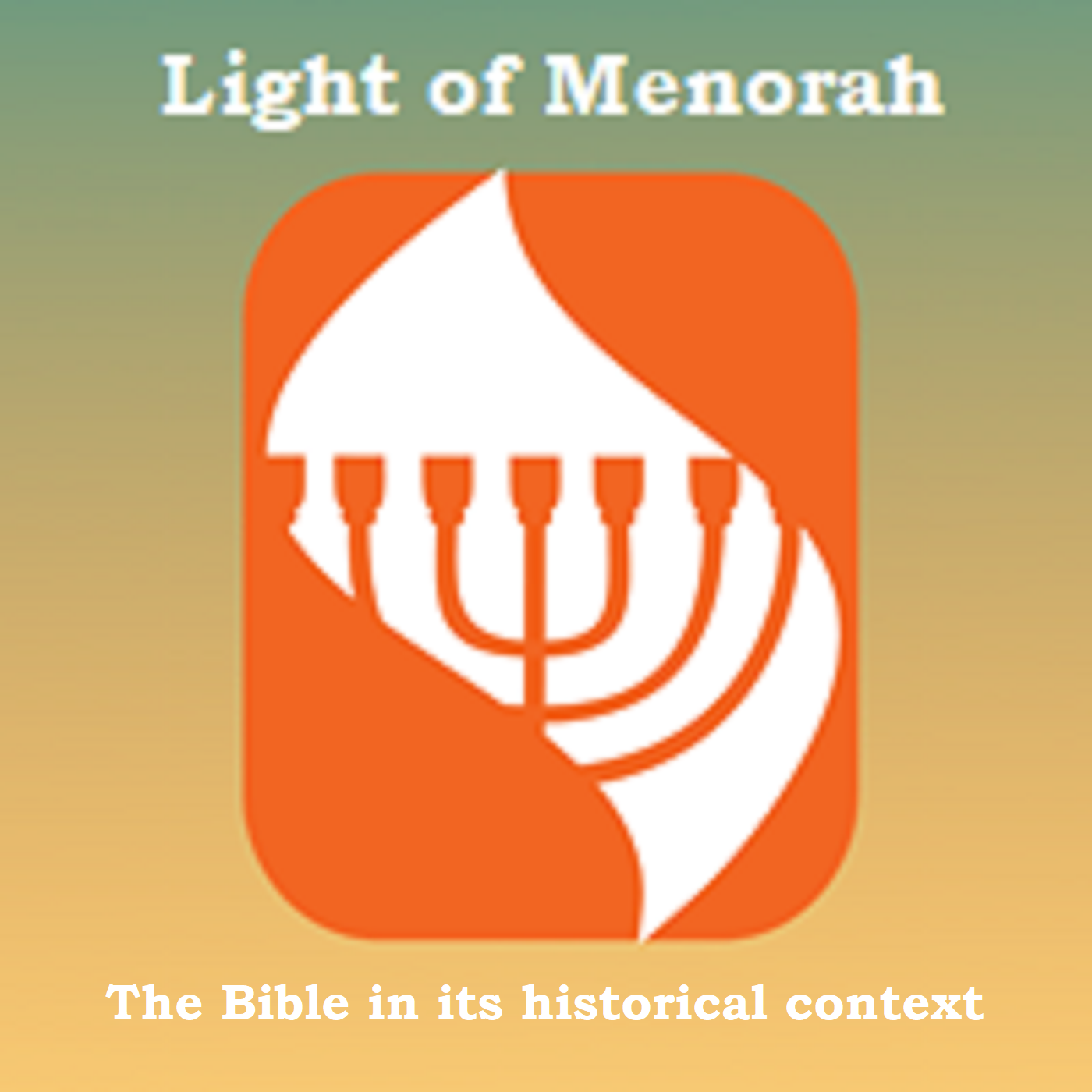
27.2K
Downloads
381
Episodes
The study of the Bible in its historical context - with a focus on the archaeology, history, geography, customs , culture, and even the languages of the ancient Middle East. WE ask what did they understand THEN - the original intent of the Lord - so that we can expand and enrich our understanding NOW and thus become true disciples of Adonai Yeshua as in John 8:31-32.
Episodes
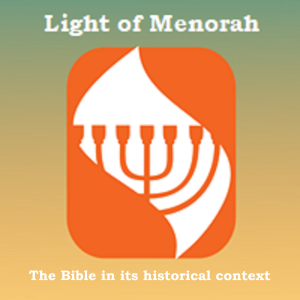
Sunday Apr 21, 2024
Exodus - 36 - Exod. 12:14-28 Passover Lamb & the Lamb of God
Sunday Apr 21, 2024
Sunday Apr 21, 2024
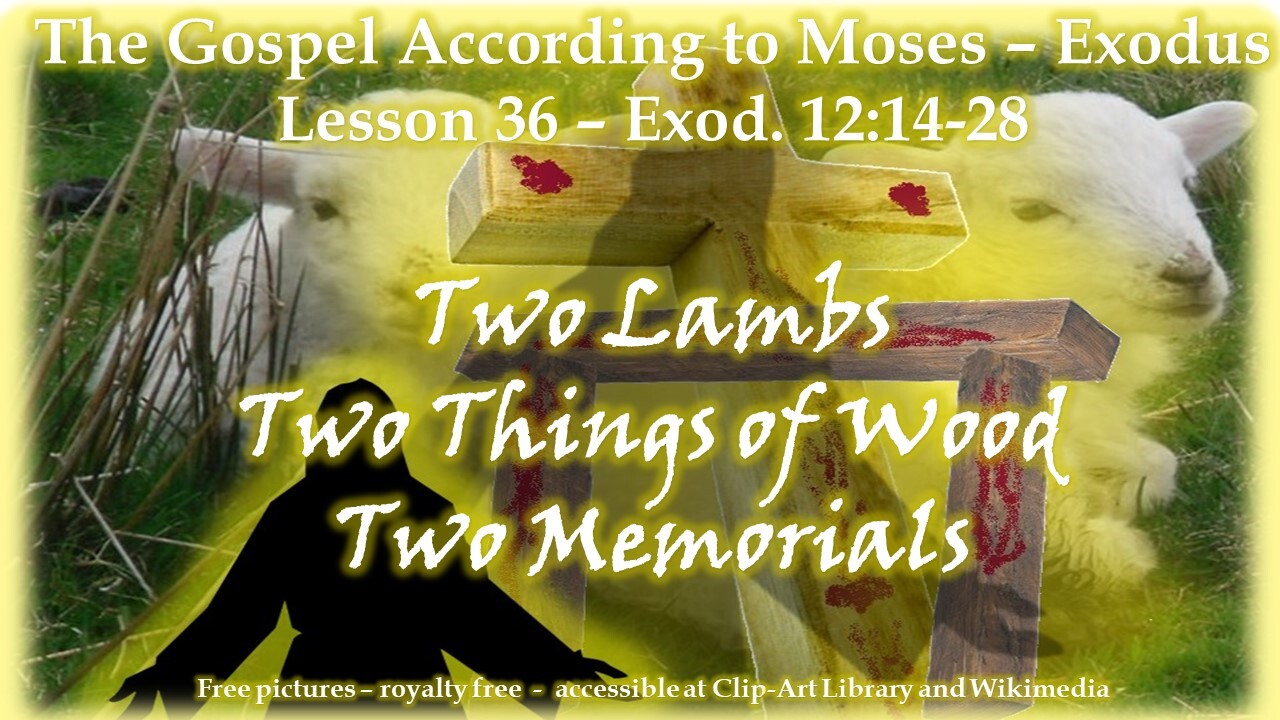

We are still in an interlude. We started Exodus 12 and did not go directly to the 10th and last plague. Instead, before the awesome hammer of the Lord falls on Egypt and the firstborn, the Lord instructs Moses to teach Israel about Passover and the Feast of Unleavened Bread.
Our focus in lesson 36 will be on Exod. 12:14-28 and we will deal with three major concepts as it relates to Passover and the Feast of Unleavened Bread.
The first concept is the command by the Lord that Israel will do a special celebration annually forever as a memorial, a celebration to remember the awesome great things God did for Israel in Egypt. The Hebrew word used for memorial is זִכְרוֹן zikrôn H2146. So the Feast of Unleavened Bread is a 7 day feast to be a remembrance of their great deliverance by the Lord out of Egypt.
What is interesting is that the TORAH deals with this concept of remembering quite a lot. God sets up so many rituals and practices used by His people to remember. Many Jewish religious men, for example, wear four tassels. This is based on the TORAH in Num. 15:37-4. It is practiced today and in Jesus’ day. One of Jesus’ tassels was touched by a woman with a bleeding disease and was instantly healed. She didn’t touch the fringe of His outer cloak but one of the four tassels on the four corners.
This command by the Lord for His men to wear the tassels is specifically for one purpose. They are to remember God’s commands, laws, and instructions to live as His people as they see the tassels. An example of God’s interest in us to remember.
The second concept is studying the phrase “cut off from Israel” or “cut off from the people.” The Hebrew word for this penalty is KARAT כָּרַת H3772. It means to be cut or severed or separated. This is a very interesting penalty that is associated with seemingly trivial matters. For example, if one goes to work on the Sabbath one is cut off from Israel. Another way to get cut off from Israel is to eat a piece of leavened bread during the feast – even if no one sees you. These seemingly trivial matters you do to receive KARAT כָּרַת also can never be forgiven. The rabbis think it is so serious that if one receives KARAT, cut off from Israel, one will not enter the World to Come or experience the resuscitation of the dead. For Christians that is like saying one will not get into heaven or ever be resurrected from the dead. So, this idea of KARAT is a big deal. One can find it over and over again in the Torah.
The last concept we will deal with is connected to the picture below.
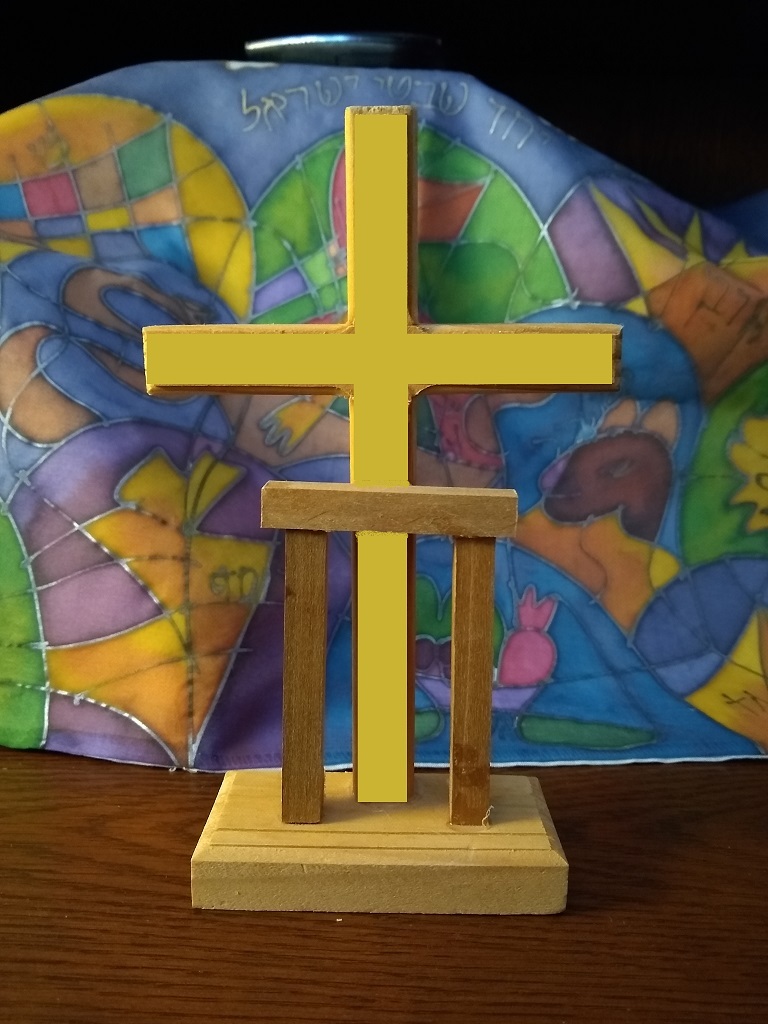
This is a decoration my wife and I have on our table when we celebrate what we call, “The Passover Meal of the Messiah.” It is normally called Jesus’ Last Supper. You will notice it is a cross with a doorway attached – a doorway with its two doorposts and the cross beam or lintel. We recall that the lamb of the Passover is sacrificed and the blood is “painted” on the wood; it is smeared on the doorposts and lintel. God says that when He sees that those inside the house will be spared from His being poured out across Egypt. Hmmm. This seems to be directly connected to Jesus who is the Lamb of God crucified on Passover. He was on the cross for some 6 hours. The blood of the Lamb of God flowed onto the wood; His blood stained the wood of the cross. Paul writes about this.
Much more then, having now been justified by His blood, we shall be saved from the wrath of God through Him. (Rom 5:9)
This is so connected to the Exodus. It is so connected to the first time God saved His people from His wrath. So the cross and the doorway seem to be connected. In this lesson we will again see that Jesus’ words are true when He said that ALL SCRIPTURE testifies of Himself. Where is He in TORAH? Right in front of us.
Who is this guy, Rev. Ferret? What's his background? Why should we take time to listen to him? Here's a link to check out his background - https://www.dropbox.com/s/ortnret3oxcicu4/BackgrndTeacher%20mar%2025%202020.pdf?dl=0
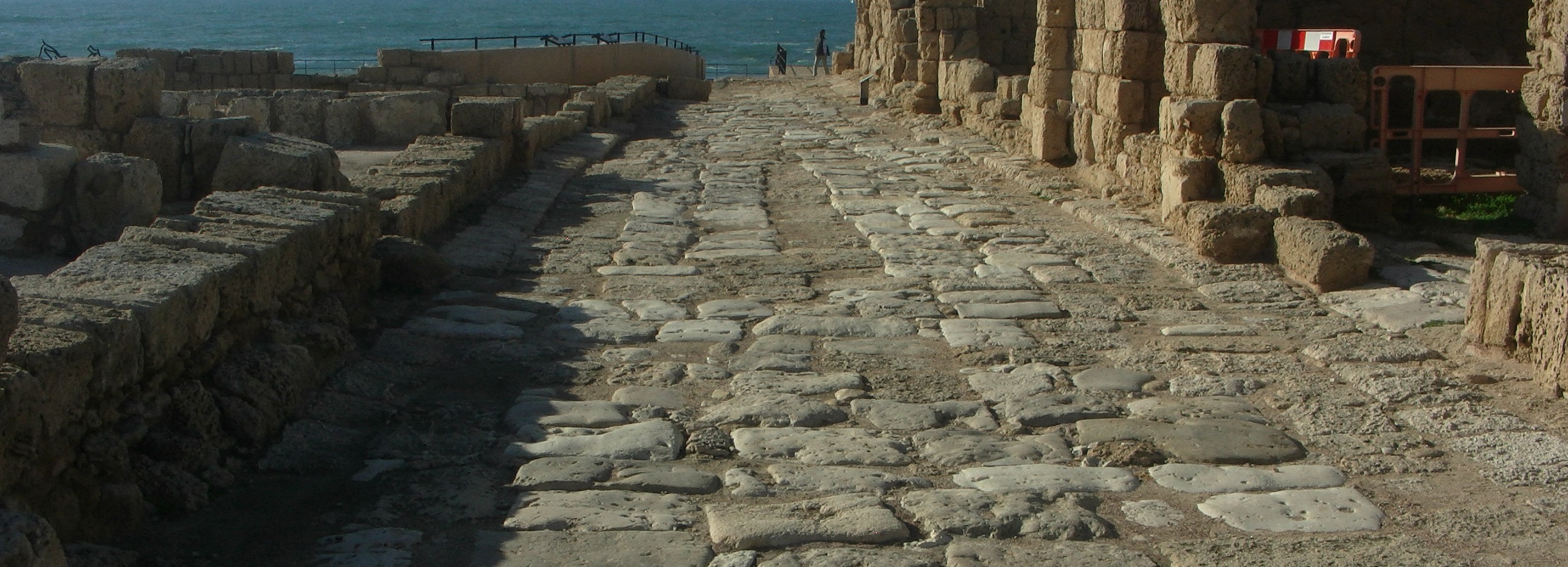
No comments yet. Be the first to say something!